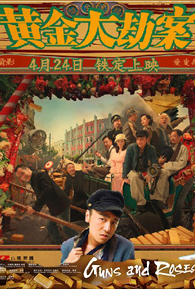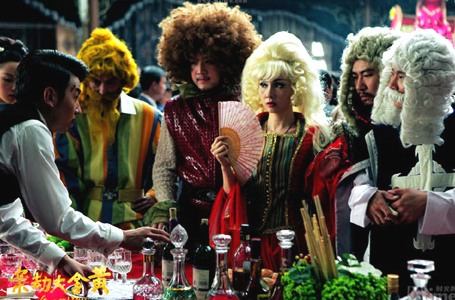
It is best to consider Guns N' Roses as a surrender to state-approved mainstream storytelling that at the same wilfully subverts and negates the very idea of its surrender. On the superficial level, Guns N' Roses is a standard Sino-Japanese flick, a neo-western and a comedy set in the puppet state of Manchuko in the 1930s. The plot involves a bunch of revolutionaries who join forces with a street-wise, morally suspect conman to carry out a bank heist to derail the funding of a military and diplomatic alliance between Germany and Japan.
Any half competent Chinese director would know how to shoot a film like this, and could probably do it in his sleep too. Yet what Ning Hao does is to turn this genre into the broadest farce not seen since 'Allo 'Allo!. While it's possible to consume this film straight as a nationalistic war film, you would be hard pressed to ignore the broadly offensive ethnic stereotypes (no one gets spared, not even the Chinese!), the bumbling incompetence of both the revolutionaries and the Japanese military, their harebrained plots, very cheap sets, costumes that really look as though they were bought in a costume party shop.
Hidden in this farce of a film is some criticism about corruption in modern China somewhere – it's pretty obvious if you know where to look. Otherwise, Guns N' Roses is the sort of film would only make sense if you grew up watching too much 'Allo 'Allo! and somehow are interested in nationalistic Chinese war films.












 打印版本
打印版本












读者回应
抢先发表第一个回应吧!
请先登入再使用此功能。